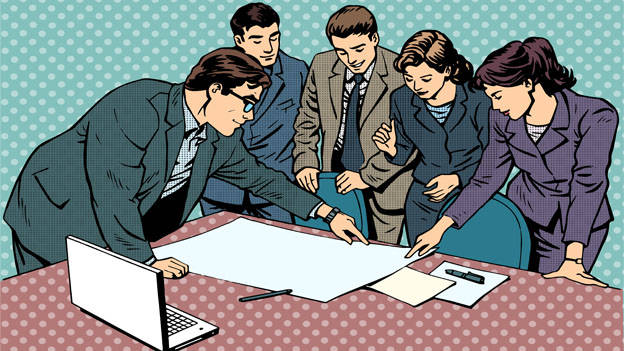Check these business etiquettes before going for a meeting

With millenials set to become the half the workforce in the near future and entrepreneurship on the rise exponentially, a lot of young professionals are increasingly stepping in shoes that require them step into uncharted territories. One such area is networking with people over meetings, lunches and presentations, for prospective clients, investment or partnerships. Their personality and charm can only help them land a meeting, but the road ahead involves being professional and following business etiquettes and codes of conduct.
In case you are new to this role, and need a crash course in preparing yourself for an important meeting, worry not, help is at hand. We bring you a few basic guidelines for young professionals to conduct before, during and after a business meeting:
Before the meeting
Do your homework: A no-brainer, but neglected more than you can imagine. Sure, you are supposed to ONLY make a sales pitch or present a social outreach plan, but these ideas do not exist in isolation. You should also know who all are attending, the complete organisational profile, recent news the organisation made, and just about everything else trending in your domain. Young people who are put in senior positions are assumed to be ill-informed and ignorant – don’t live the stereotype!
Communication: All communication before the meeting needs to be routed through official channels – meaning professional email ids, and office numbers. Your emails and LinkedIn profiles should have professional headshots, and not pictures from your last vacation. Proper (formal) salutations, grammatically correct emails with no typos, and a formal signature are non-negotiables.
During the meeting
Introduction: When you are being introduced to someone, stand up. If you are heading the team to a meeting, it is your responsibility to introduce everyone on your side. If you are the higher-ranking person, or the host, initiate the handshake. Say your complete name when being introduced, or if that happens to be too long, at least the first and last name. If you have forgotten the other person’s name, or did not hear it correctly, admit it, and ask them again. It is just unsettling to refer to someone with a wrong name over and over.
Distractions: Drawing a doodle on a tissue during a marketing pitch and then pitching a genius idea at the end of the meeting to admiration and applause is the stuff of TV commercials. No matter how much bored or distracted you are, keep away from the phone, or fiddling with stationery. Restlessness is indicated explicitly through your body language, hence be conscious of the same.
Addressing people: No matter what you feel about what is being discussed, save your thoughts until the person who is speaking has finished. Interrupting somebody is downright rude, and reflects poorly on you. Addressing someone else by pointing to them might seem harmless, but reflects to an aggressive approach, so use an open hand and keep all fingers stretched while referring to someone. If the meeting is over a dinner, as is deemed polite, do not use cutlery as signage.
Working Lunches: If the meeting is happening at plush coffee shop or fine-dine restaurant, do not order anything too pricey, no matter who is footing the bill. Order the same amount as your host/guest, and count on the number of sparkly glasses you are downing. As a general rule, the host, or the one who called for the meeting should pay the bill, but it is never polite to be debate too much over it.
Always conclude the meeting, and clearly communicate the next step, and whose responsibility it is.
Post meeting
Thank-You: Sending a thank you note/ email, with a few lines about how the meeting went, to everyone who was a part of it, is just good manners, and shows that the meeting was enjoyable and constructive. Assuming that throwing around business card left and right will solve the purpose of business contacts keeping is touch is not correct – ask the other person before reaching your pocket!
A business meeting with a new client or investor has a lot riding on it, no matter how big or small the organisation is. Young professionals need to step up to the role they are playing, and not let their lack of experience come in the way of carrying a successful business meeting. Although the rules of doing business are changing drastically, don’t forget, the game is still the same, and first impressions have a lasting impact.
Are you a young professional? Let us know how your first business meeting went!















